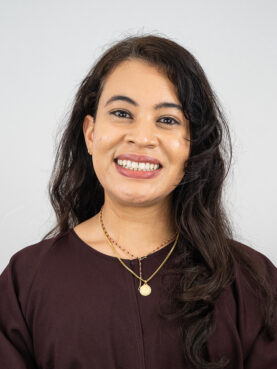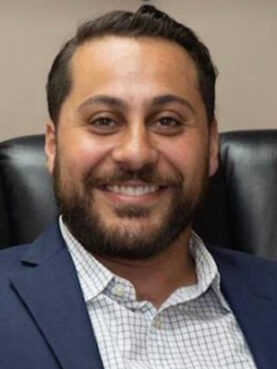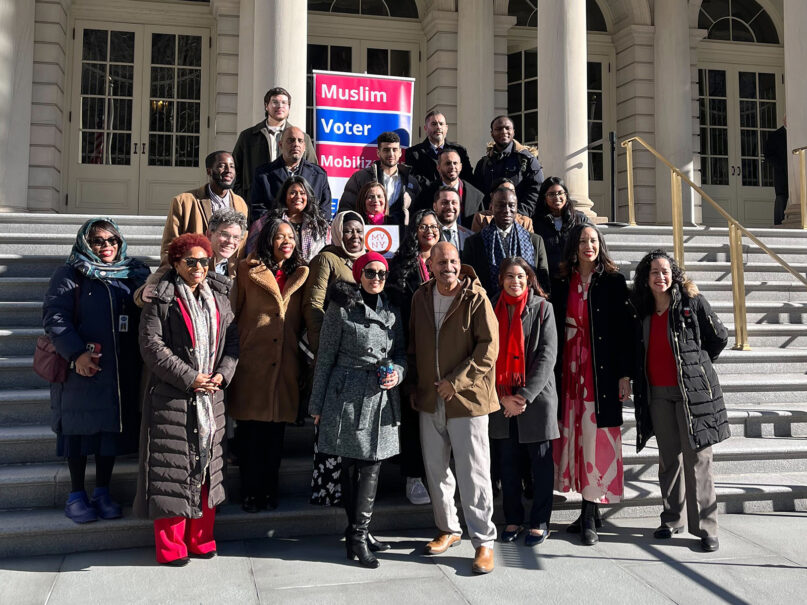NEW YORK (RNS) — Leaders of New York-area Muslim organizations gathered at City Hall in downtown Manhattan on Thursday (Feb. 8) for the fourth annual Muslim Day, an event launched in 2021 to raise the Muslim community’s profile and bring its concerns to the attention of the City Council.
The initiative was launched by Emgage, an 13-year-old organization that works to increase Muslim voters’ mobilization. Emgage was joined this year by two dozen other organizations doing work across the city on behalf of migrants and Muslim business owners, while also empowering Muslim women.
Besides providing Muslims a chance to connect with political representatives, Muslim Day is also an occasion to celebrate the contribution of Muslim New Yorkers, who at an estimated 1 million people represent about 11% of the city’s population.
Heba Khalil, director of Emgage’s New York chapter, began the event by acknowledging how the community’s influence had grown. She noted the stark contrast with the post-9/11 years when Muslim New Yorkers were frequent victims of Islamophobia and marginalized politically.

Heba Khalil. (Photo courtesy Emgage)
“I have seen our voting numbers increase, I have seen major impacts on elections and legislative changes. I have seen our young leaders getting more and more involved in leadership roles. Days like today are a great time to take a moment and celebrate our collective power,” said Khalil.
The event was endorsed by the City Council’s two Muslim members, Shahana Hanif and Yusef Salaam. Salaam, elected this year to represent Harlem on the council, is one of the Central Park Five, a group of Black teenagers wrongfully convicted in the sexual assault of a Central Park jogger in 1989.
“What we are doing here is about really exposing the community, the society, the nation, to the beauty of what it is to be Muslim,” said Salaam.
The focus of the fourth Muslim Day was the ongoing war between Israel and Hamas. Members of the participating organizations gathered with community leaders and City Council members on the steps of City Hall to call for a permanent cease-fire in Gaza and denounced a surge in Islamophobia in New York City related to the war.
“One of the biggest things that we’re also facing is the fear of retaliation for solidarity with Palestine among Muslim and pro-Palestinian activists since Oct. 7,” said Emgage’s Khalil.
City Council members Chi Ossé, Sandy Nurse and Alexa Avilés joined the call for a cease-fire.
Youssef Mubarez, director of public relations for the Yemeni American Merchants Association, said the surge in Islamophobia has taken a toll on the 100,000 Muslim-owned businesses in the city. Armed robberies have become more common, leaving bodega owners in fear, he said.

Youssef Mubarez. (Photo courtesy of YAMA Action)
Mubarez connected the rise in attacks and harassment with the Israel-Hamas war, citing as an example a recent incident in which an Upper East Side halal food truck vendor was berated by a former State Department staffer.
Mubarez asked City Council members to consider allocating funds for crime prevention training for Muslim business owners and to support measures that “combat Islamophobia and bias against these Muslim-owned businesses,” he said.
The Muslim Community Network, a coalition of 12 migrant aid organizations, noted Islamophobia’s effect on African Muslim migrants. “Our community faces Islamophobia, anti-Arab sentiment, tied to Palestine and anti-Blackness and xenophobia that particularly affects our migrant communities from Africa and all across the world,” said Husein Yatabarry, the network’s director.
Yatabarry stressed the need for cultural sensitivity training for NYPD officers to help them deal fairly with the Muslim community, especially in taking the need to report religious bias complaints with more seriousness.
Diya Basu-Sen, executive director of the South Asian advocacy group SapnaNYC, emphasized the need for practical policy changes to make New York’s Muslim community feel more welcome.
“As we approach Ramadan, I want to emphasize that we’re looking for real allyship and solidarity. We don’t want iftars and Eid celebrations, if those don’t also come with policies and funding to support our 1 million Muslim New Yorkers,” she said.
This article was updated to correct that the third council member who called for a cease-fire was Sandy Nurse, not Amanda Farias.





